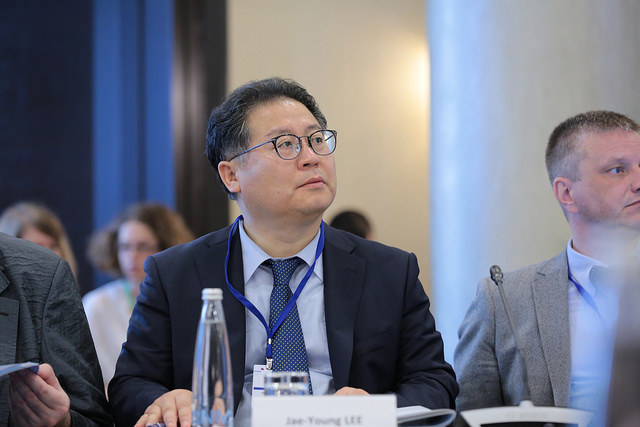On 30-31 May 2016 the RIAC held a major international conference entitled “Russia and China: towards a new quality in bilateral relations”. The conference discussed various aspects of the two countries’ relationship, and also the regional dimension of cooperation between Russia and China. There was a special focus on processes of integration in the Eurasian area. The RIAC editorial team have asked foreign experts about the competition between Russian and Chinese integration initiatives.
On 30-31 May 2016 the RIAC held a major international conference entitled “Russia and China: towards a new quality in bilateral relations”.
The conference discussed various aspects of the two countries’ relationship, and also the regional dimension of cooperation between Russia and China. There was a special focus on processes of integration in the Eurasian area.
The RIAC editorial team have asked foreign experts about the competition between Russian and Chinese integration initiatives.
How can competition between Russia and China be avoided in integration projects in the Eurasian area?
Abiru Taisuke, research fellow with the Tokyo Foundation
The best way to avoid competition and potential confrontation between Russia and China in the Eurasian area is to involve other countries in integration processes. This approach would give a positive impetus to the development of integration. I’m sure that Japan will be one of the active participants in integration processes in the Eurasian area.
Sevak Sarukhanyan, assistant to the Chairman of the Board of the Eurasian Economic Commission
The safest way is to coordinate efforts of linking the Silk Road Economic Belt and the Eurasian Economic Union. The process of linking is all about proactive negotiations to identify all the challenging issues in the relationships between the member countries. As we know, negotiations are the best way of achieving compromise and a balance of mutual interests.
Nandan Unnikrishnan, Vice President and Senior Fellow at the Observer Research Foundation
I wouldn’t say that Russia and China are currently in competition, especially in the economic sphere. On the other hand, bearing in mind the geopolitical situation, at the moment I don’t foresee any rivalry between Russia and China. Both countries are aiming for cooperation, and that’s very clear.
Jae-Young Lee, Vice President, Department of Europe, Americas and Eurasia, Korea Institute for International Economic Policy (KIEP)
Russian-Chinese relations are currently developing in an extremely positive and dynamic way. China and Russia have moved markedly closer in the context of the anti-Russian sanctions imposed by the European Union and the USA. As we know, the Eurasian region is now developing particularly dynamically and is increasingly the focus of attention of the whole world. Many countries are putting forward initiatives and strategies in relation to the Eurasian region. Russia is developing the Eurasian Economic Union, and Vladimir Putin has proposed the so-called “New Eurasian Policy”. China is offering us the Silk Road Economic Belt, and Mongolia the Steppe Route. The Republic of Korea is proposing its Eurasian Initiative. Of course, there are factors both of cooperation and of conflict in the matter of Eurasian integration. For example, China is trying to develop the central belt of the Eurasian continent, while Russia is focusing on the north. On the other hand, India, Pakistan and the USA have an interest in developing the southern part of the continent. Here we can see a certain divergence in interests.
The Asian Infrastructure Investment Bank and other institutions have been set up, but a question still arises: who’s going to pay for projects of this kind? This includes the question of infrastructure projects. If we build railways in Central or North-East Asia, for example, and improve the infrastructure in the region, our investment will also grow, as will the level of trade. We have shared goals, and to focus exclusively on our own projects would be reckless. Since we are working together, it would be sensible to find points where Russian, Chinese and Korean initiatives coincide. Then we would be able to undertake projects to develop the Eurasian continent on the basis of pragmatic cooperation.
We need to prepare ourselves for long-term cooperation, within which the relationship between Russia and China will only develop.
Zhao Huasheng, Director, Centre for Russian and Central Asian Studies, Fudan University
I think competition comes in normal and abnormal forms. Normal competition exists everywhere, between all states. We need to avoid bad competition, which implies ulterior motives. So far we’re managing to do this. The link between the Eurasian Economic Union and the Silk Road Economic Belt, which our leaders have agreed, is an excellent example of this.



.jpg)




